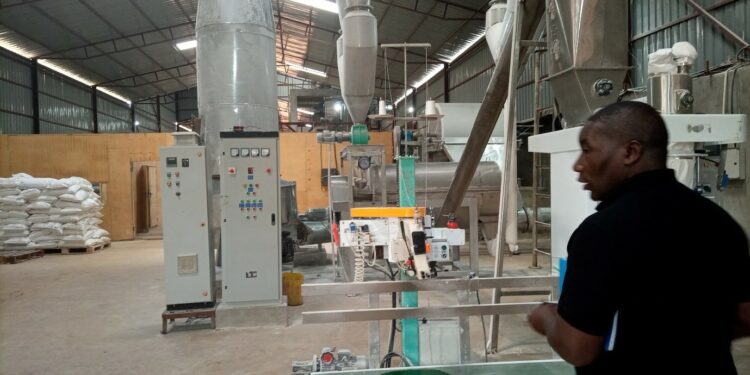Growing up, Aleje Modesta’s future seemed bleak. She was raised in a humble setting in a small village in Bukedea District. Modesta’s story is not an isolated case in Uganda. The difference in her narrative is she didn’t relent, nor did she wallow in pity – it is a story of perseverance.
In 1997, ambition drove Aleje into small-scale farming, producing a variety of subsistence food crops to fend for her family and make some income from the surplus. She later carved into growing cassava, cotton, and rice. She barely broke even because she didn’t have the requisite sales knowledge and ready market for her produce. The farm-gate prices were very low, and the middlemen took the lion’s share.
In her quest to reverse the status quo, Aleje penetrated the farming network. It is through these interactions that she learnt of Lukonge Cotton Company Limited – a company involved in the cotton ginning business for export and cassava processing. The company has three operational cotton ginneries in Mbale, Palisa, and Busembatia, with an installed capacity of 150 bales each per day. The project has established a cassava processing plant on 6.615 Hectares of land found in Opwateta Sub-County, Pallisa County, Palisa District, with a 50-ton per day capacity. The cassava processing plant obtains raw materials from 10,000 farmers using the already established 112 collection centers in Kumi, Amuria, Pallisa, Serere, Katakwi, Bukedea, Dokolo, Amolatar, and other neighboring districts.
Doing business with Lukonge Cotton Company Limited has scaled up Aleje’s business.
“Lukonge gives me advances, raw materials like seeds and cassava cuttings because I told them I had land (hired), but I wasn’t in the position to buy the cuttings to plant the 10 acres, yet it was my desire,” Aleje says.
With the interventions from Lukonge Cotton Company Limited, Aleje’s productivity and profitability have improved.
“I recently planted and harvested 35 acres of cassava totaling Shs9.5 million,” she says with a confident smile of success.
“I thank God for Lukonge and the Uganda Development Bank for the support they have extended to me since I started working with them. It is because of Lukonge that I managed to buy a piece of land. Before I bought it, I used to rent it. There are so many things you cannot do on a land that is not yours. For example, an irrigation scheme which can help you when the weather is unpredictable.”
Today she is a proud owner of 10 acres of land in Bukedea District and is educating her children at the university.
Aleje is hopeful that when her university-going children graduate, she will be able to expand her farmland and grow more produce for the market.
These milestones are the epitome of her cassava farming career – doing business with Lukonge has given her life a new meaning.
Aleje’s story is almost like that of hundreds of other cassava farmers that are doing business with Lukonge Cotton Company Limited.
In addition to creating employment, Lukonge Cotton Factory, which receives financial support from Uganda Development Bank (UDB), has supported farmers like Aleje to transform their lives and agri-businesses.
Originally inclined to cotton processing, Lukonge realized that most farmers were growing cassava but had no market to sell their products. The factory reached out to UDB for financial support. The Bank tailored a solution that applied to the business and enabled the business to set up a small cassava factory that would help buy cassava from the farmers. From the cassava, the factory extracts starch powder through a three-phased process, including washing, hydroxylation, and grinding.
The product is used to make paper, food, spices, beverages, and medicine. These are traded in Uganda as well as exported to Kenya and Rwanda, among other markets. In the future, the factory, which employs 80 technical and non-technical staff, hopes to double its capacity by producing and selling more products but, most importantly, transform the lives of millions of farmers and traders in Eastern Uganda.
Such growth and expansion ambitions are made possible by UDB, which supports projects within the private sector that demonstrate the potential to deliver high socio-economic value, in terms of job creation, improved production output, tax contribution, and foreign exchange generation, among other outcomes.
Uganda Development Bank (UDB) aligns its sector priorities with National Development Plan III (NDP III), focusing on Primary Agriculture, Industry (to include agro-industrialization, manufacturing, knowledge-based industries, and extractives), and Services (health, tourism, and hospitality, education, science, technology, and innovation) and Infrastructure. Agriculture, agro-industry, and manufacturing constitute about 75% of the Bank’s portfolio in alignment with the government focus under NDP III and Vision 2040.
Do you have a story in your community or an opinion to share with us: Email us at editorial@watchdoguganda.com













